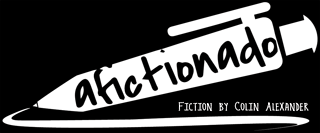Book reviews, I mean official editorial ones. Important to have when you are launching a book so the book will be noticed, especially if you are indie and self-published, but that is exactly where they can be hard to get. So, a notice came the other day from Barnes and Noble about a new partnership they have with BookTrib, a service that can, among other things, provide a book review. So, I went and looked. They offer paid book reviews; i.e., the author pays a fee and they will review the book. They also offer other services of a promotional nature, fee-for-service, of course. These are usually red flags, an indicator that you will pay out money and not get much of value for it. I checked SFWA’s Writer Beware and nothing came up on search. That’s a good thing but always remember the saying: absence of evidence is not evidence of absence. There are pay-for-review services that are completely legit. Kirkus Reviews, for example. NetGalley also is a pay service to have your book in it. Both are well-known and well regarded and it is well-known that you have no guarantee of a positive review. I have placed books with both for reviews and will again. Where does BookTrib fall? Right now, I can’t find enough information to know – positive or negative – so I’m going to keep an open mind and keep looking around. If you’ve had experience with them, I would like to hear it.
On the pleasure reading side, bought John Scalzi’s “The Last Emperox.” This is the third and supposedly final book of the Collapsing Empire series. I enjoyed it. A lot. Scalzi has come up with one of the most original concepts for interstellar travel – the Flow – a physical property of the universe that is in the process of going away. The series concerns the actions of an interstellar civilization that depends on the existence of this to connect worlds and stations that cannot survive in isolation. It’s a great adventure plot – hey, the end of civilization is a pretty existential issue – and his world-building is excellent. There are some points I didn’t like as much. His characters have attitude and tend to be snarky, which is fine, except that they sound too much like each other. Even Kiva, a main character whose signature is dropping an f-bomb in almost every sentence, sounds (if you remove the f-bombs) like a lot of the others. It tends to leave the characters a bit flat. That said, this is a plot-driven book and is a fast, enjoyable read. I said “supposedly final book” above because that is the claim. There would be room for another one and I would read it if he writes it.
